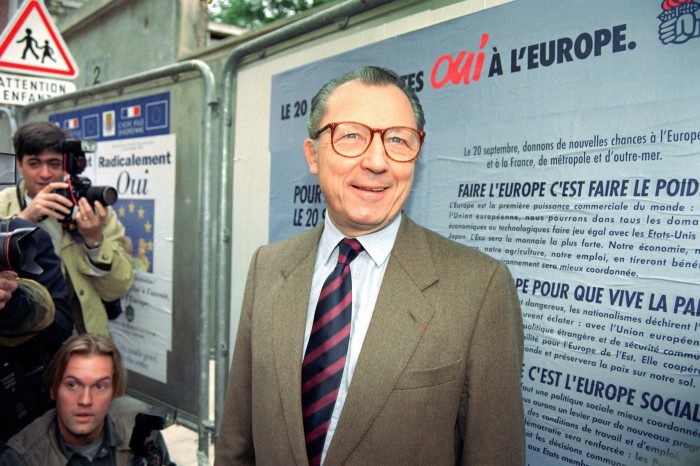This week is rich with commemorations.
It begins with the anniversary of the Maastricht treaty, signed 30 years ago on Monday by the 12 member states of what had been the European Community. It established the EU and laid the foundations for monetary union as well as fuelling concerns among those opposed to further political union, arguably sowing the seeds of Brexit. Expect some (further) soul-searching this week.
A different type of political change occurred in Iran this week in 1979, when the Islamic revolution ended the monarchy of the shah and ushered in rule by the clerics. The country’s leaders will no doubt look back on its significance, but the more pressing challenge for Tehran is economic recovery in the face of US sanctions, although progress is being made.

Economic data
There has been much debate on the UK government’s claims about the strength of the pandemic recovery. Much attention will be paid to the country’s quarterly and monthly GDP estimates, published on Friday.
Elsewhere, there will be data on US inflation and Germany’s production and trade figures. Plus rate rises are expected in Mexico and Russia, and the EU will update its economic forecasts.
Companies
We are deep into earnings season. This week it is the turn of consumer goods companies, drugmakers and motor manufacturers.
Unilever’s full-year results on Thursday will face close scrutiny after the unpopular attempt to buy GlaxoSmithKline’s consumer health division and news that activist fund Trian Partners — co-founded by Nelson Peltz — has acquired a stake. As the Hellmann’s mayonnaise maker plans a reorganisation that will scoop ice cream from the rest of its food arm, investors will want to know if it will sell either or both food divisions and how it plans to boost performance in the rest of the portfolio — as well as whether the company’s chief executive, chief financial officer and chair can all survive the current GSK debacle.
Results from Coca-Cola and PepsiCo will reveal whether a resurgence in Covid-19 cases around the world knocked soda demand in the December quarter. New lockdown measures in China plagued restaurant chains McDonald’s and Starbucks, their earnings showed, while supply chain costs, including delays from Canada, continued to mount. Still, analysts expect Coca-Cola and PepsiCo to report stronger revenues compared with the same quarter in 2020.
Japanese carmakers Nissan and Honda will be revealing their P&Ls this week. But investors will be watching to see whether Toyota, the world’s top car seller in 2021, can shrug off the impact of chip shortages in the coming months after its announcement in January that a supply glitch would force it to cut output for February — this Lex note provides an explanation of the consequences. In output terms, it means Toyota is unlikely to reach its production target of 9mn vehicles for the fiscal year to March.

